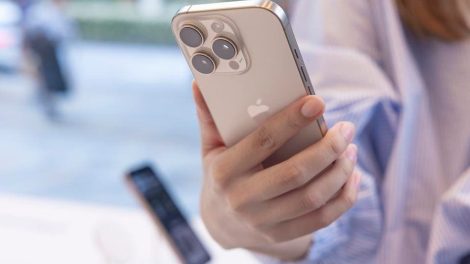The idea that your smartphone could be spying on you isn’t far-fetched. In an age of pervasive technology and growing privacy concerns, your phone may be recording data without your consent. This includes eavesdropping on conversations, tracking your location, or monitoring your online activities. While these scenarios may seem extreme, several real-world incidents have validated such fears.
Here’s a comprehensive guide to understanding the signs of potential phone surveillance, how to test for it, and steps to protect your privacy.
Why Phones Are Vulnerable to Surveillance
Modern smartphones are equipped with microphones, cameras, GPS, and sensors that collect data to improve user experience. However, these features can also be exploited. Unsuspecting users might install apps that collect excessive data or fall victim to malware. Even trusted apps may overstep their boundaries, harvesting more data than necessary for profit or strategic purposes.
Large-scale data breaches have shown that no system is completely secure. Hackers, rogue insiders, and even companies can misuse personal data. Reports have surfaced about apps and devices “listening” to conversations, only to later show targeted advertisements based on private discussions.
Recognizing the Signs of a Spying Phone
Your phone may exhibit unusual behavior if it’s being used for surveillance. Here are some of the key indicators:
- Excessive Battery Drain
Spyware operates in the background, consuming significant battery power. If your phone’s battery depletes faster than usual, it could be a warning sign. - Increased Data Usage
Malware and tracking software send data to external servers. If you notice an unexplained spike in data consumption, spyware might be to blame. - Unusual Heating Patterns
If your phone heats up when not in use or while performing minimal tasks, background activity like unauthorized monitoring could be occurring. - Strange Noises or Behavior During Calls
Unfamiliar clicks, static, or echoes during phone calls may suggest unauthorized listening. - Pop-ups and Ads
Random advertisements, particularly if they don’t match your browsing habits, might indicate adware or other malicious software. - Unfamiliar Apps
Apps you don’t remember installing could be spyware disguised as legitimate software. -

Source – CNBC.com
Testing for Unauthorized Listening
The simplest way to test if your phone is listening is by experimenting with targeted conversations. For this test:
- Turn off voice assistants like Siri, Alexa, or Google Assistant.2.
- Choose an obscure topic you’ve never searched for or discussed.3.
- Casually talk about this topic near your phone for a day. Avoid typing or searching for it online.
- Monitor your advertisements and recommendations on platforms like Facebook, Instagram, or Google.
If ads related to your chosen topic appear, it may indicate that your phone has been listening.
Advanced Testing and Verification
If you suspect deeper surveillance, you can:
- Check for Rooted or Jailbroken Devices
Malware often targets rooted or jailbroken phones, as they bypass built-in security. Use software tools to verify your device’s integrity.2. - Review Logs and Files
Spyware might leave traces in activity logs or unusual files. Explore your device storage or use a forensic tool for deeper analysis.3. - Monitor Network Activity
Spyware sends data to external servers. Apps like Wireshark or Netstat can track unexpected network activity.
Preventative Measures to Protect Your Privacy
1. Restrict App Permissions
Revisit permissions granted to apps. Deny unnecessary access to your microphone, camera, and location. For example, your calculator doesn’t need GPS access.
2. Regular Software Updates
Keep your phone’s operating system and apps updated. Updates often include patches for known vulnerabilities.
3. Use Reputable Security Software
Install trusted antivirus or anti-malware apps that detect and remove threats.
4. Avoid Public Wi-Fi Without a VPN
Public Wi-Fi networks are vulnerable to hackers. Use a virtual private network (VPN) to encrypt your data.
5. Verify App Sources
Only download apps from official stores like Google Play or the Apple App Store. Avoid sideloading apps from unknown sources.
6. Factory Reset
If you strongly suspect spyware and can’t eliminate it, perform a factory reset. Back up essential files and restore the phone to its original settings.
7. Turn Off Unused Features
Disable features like Bluetooth, NFC, and voice assistants when not in use. These can serve as entry points for surveillance.
Broader Implications of Smartphone Surveillance
Surveillance isn’t limited to hackers or spyware. Governments, corporations, and even well-known apps can engage in data collection. While regulations like the GDPR and CCPA aim to protect user privacy, enforcement is inconsistent. This makes personal vigilance crucial.
The ethics of surveillance raise important questions about how much control users should have over their devices. By taking proactive steps, you not only protect yourself but contribute to broader efforts to establish accountability in the tech industry.
Tools to Enhance Privacy
| Tool | Purpose | Recommended Options |
|---|---|---|
| Antivirus Software | Detects and removes spyware | Norton, Kaspersky, Avast |
| VPN | Encrypts your internet connection | NordVPN, ExpressVPN, ProtonVPN |
| Permission Manager | Monitors app permissions | Bouncer (Android), iOS Privacy Tools |
| Network Monitor | Detects unusual data activity | Wireshark, Fing, GlassWire |
Taking Control of Your Privacy
Smartphones are essential tools in modern life, but they come with significant risks. Surveillance concerns, whether from malicious actors or intrusive applications, demand attention. By identifying warning signs, testing for spyware, and implementing preventive measures, you can take control of your privacy.
Staying informed and vigilant ensures that your phone serves as a tool for convenience and connection rather than a source of concern. Take the necessary steps today to secure your device and your personal information.










Add Comment